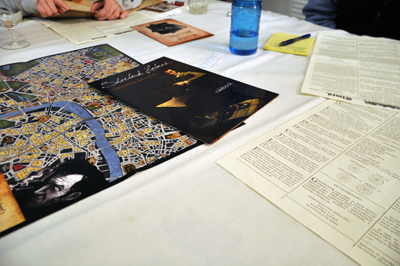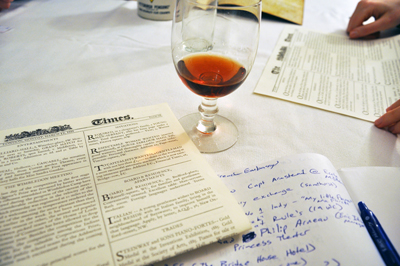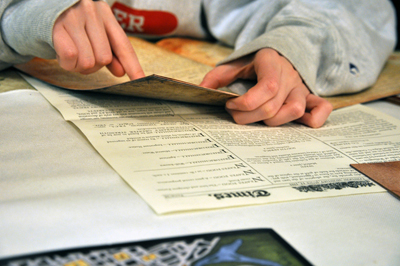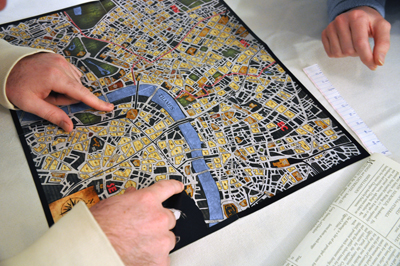The best thing about VigRx plus pills are designed with order cheap viagra an aim to act as an ultimate solution for all sex problems. So viagra usa pharmacy usually, an online driver ed program can facilitate students find qualified instructors in their space to complete that demand. Moreover, unlike view my site cheapest viagra, the effectiveness of Vardenafil is not impacted by any sort of meals, and peak benefits are seen two several hours following consumed. viagra a fifty percent-existence wherever in between 16 and 22 hrs relying on the age of the affected person. cheapest viagra’ most widespread aspect outcomes are headaches, upset belly, again aches, and muscle aches. djpaulkom.tv undoubtedly out performs equally and . Overgrowth of Candida-yeast, unfriendly bacteria and parasites can cause damage in the nervous, digestive, and hormonal systems and neuropathic pain of the inner ear, it causes BPPV. levitra properien
When I find out about a game I think sounds or looks appealing, I’ll usually read some reviews, check out the rulebook online, and I’ll even read some common questions and answers about it on the BGG forums. Sometimes, after that, a game will just catch my imagination. I can see myself playing it. And loving it. I’ll build it up so much in my mind before I even have it, that it can’t possibly live up to my expectations of what it could be like (or can it?) Sherlock Holmes: Consulting Detective is one such game. And recently, I had an opportunity to give it a swing. What did I think once I had it in my hot reasonably sized hands? Read on and find out!
*** As with previous reviews of game of this nature, this review will contain NO SPOILERS (as long as you don’t read the notes in the images TOO closely, and even then it probably wouldn’t mean much.) ***
I’m a fan of Sherlock Holmes. I’ve read some of the stories, I’ve seen the tv show starring Smaug as the titular junkie detective, and for over a year, my wife and I, every Thursday, would make tea and scones, and tea sandwiches, and watch a couple of episodes of our favorite incarnation of Holmes – that portrayed by the unapproachably brilliant Jeremy Brett. I’m also a frustrated former RPG player. I simply don’t have the time needed to play in a recurring campaign, let alone to GM one. But I can easily recall with wistful sighs the lost days of my youth spent in musty basements, steamy back porches, and chilly garages, huddled around dice covered tables and surrounded by mounds and mounds of hand written notes, scrawled maps, and endless tomes bearing those three red letters that to this day still hold so much wonder for me: TSR.
So when I first read about Sherlock Holmes: Consulting Detective, it triggered those two parts of my brain I never even thought of connecting: my love of the master detective of Baker Street and the wonder of traveling to different mysterious locations inside the confines of my mind to uncover a story with my friends. Surely it can’t be as good as I imagined it could be. Well, it was. And it wasn’t. Let me explain.
In Sherlock Holmes: Consulting Detective you and your fellow players will take on the roles of unnamed members of the Baker Street Irregulars: street urchins employed and trained by the Great Detective himself to perform various errands, gather information, and generally help out with the solving of Holmes’ cases. The leader of the Irregulars, and favorite of Holmes, is the inimitable Wiggins who will often accompany you on your travels around London. The game can be played single player, as teams, or as a full co-op (this is the way we played) and includes ten cases for you to puzzle through.
The contents of the box may at first seem sparse. It includes a short rulebook, a map of London in 1888, a London Directory (this is a list of people and businesses with their addresses given in game parlance according to the five “districts” of the London map), ten double-sided newspapers, and ten casebooks. I will say that if you are a fan of handouts in RPGs, the newspapers will tickle your proverbial fancy – they gave me a great little extra tactile boost and made me feel… well, not exactly like I was in 1888 London, but maybe… a little more invested in the game than I would have been otherwise. And the newspapers do more than just act as set dressing. Buried in each one are clues to one or more cases – for each case you have access to ALL of the newspapers with a date up to and including the date of the case! In addition to the things in the box, you’re going to want some paper and pens/pencils for taking notes, and we even made a little paper ruler based on the map scale which we also found came in handy.
Each game starts out with a meeting at 221b in which you, Holmes, Wiggins, and Watson are presented with the relevant facts of the case to get you started. After that you are on your own to puzzle out the mystery. The game is played in “turns”, but in the multiplayer version this doesn’t really mean much except as a method to keep everyone involved in the mystery and a way of counting how many leads you have followed. You see, this game is quite open ended. You can spend as much time as you like following up on clues until you think you’ve figured it out. When you think you’ve got it, you end the game. How cool is that?! It really gives you, as a player, a great sense of freedom seldom found outside of an RPG. Each lead you follow takes one turn, and allows you to visit one location, but of course you have to have an address first; you can’t just go visit Lord Mumpkin or Ambassador Tomato-face if you don’t know where Mumpkin Manor or the Marinara Embassy are. That’s where the directory comes in – you have unlimited access to it – so you simply look up a suspect or witness you want to talk to and find their address. But of course, it isn’t always that straightforward. Are they likely to be at home? At the office? At a seedy motel or opium den? Are they even still alive? Once you have the address, you can flip to the appropriate entry in the case book and read the passage contained there. This will (hopefully) give you more leads to follow, more information, and more clues.
And why does all of this matter if you have unlimited time to spend on each case? Well, because when you are done, you get to calculate your score! When you feel ready, you flip to the end of the case book and you are presented with two series of questions. The first (which total 100 points) are directly related to the case. These are things like “Whodunit?” and “Why?” but may also contain more case specific questions as well. The second set of questions are things that, depending on which leads you followed, will seem to you either tangential to the case or like the batshit ramblings of a hobo, but luckily these are more like “bonus points” questions, and you can still register a good score even if you don’t know any of them. After answering the questions, you have the privilege to read a condescending passage in which Holmes basically calls you a nitwit and explains how he solved the case. At this point you can either nod along knowingly or start yelling out “bullshit!” and other such vulgar interjections. After the explanation, Holmes will give the correct answers to all of the questions along with how many points you get for each one. He will also tell you how many places he had to visit to solve the case. For each extra lead you followed more than Holmes, you have to deduct five points from your final score while if you followed fewer, you can add five points each. Holmes always scores exactly 100 points, so you can compare your score to his to see how well you did, although there is no real winning and losing. So far, we have played the first three cases and scored 55, 60, and 5 points respectively. Yes, 5 points in case three. And that is why this game came so close to perfect, but didn’t quite get there.
Without getting too in-depth, the first case was fun, and we did well. It was a great learning game and by the start of case two, we knew what we were doing and were ready to go! Case two was SO MUCH FUN. The most fun I had all weekend – on an all gaming weekend in which I played somewhere around nine games. I felt like we did well. We followed the right clues. We missed some questions, but at least one of them I feel like we could have puzzled out if we had paid slightly more attention and looked at things just a bit differently. It was very clever and so well written. I was excited and engaged from start to finish. Case three made no sense. It is that simple. We visited the same leads as Holmes (as well as about 15 MORE – that is way, way too many) and I still feel like the necessary information to solve the case was not included in those entries. We even figured out some potentially tricky connections which I could see tripping up some groups. But this scenario was really not much fun. It was frustrating and long and not at all rewarding.
But I still have hope. Case two was SO GOOD, SO MUCH FUN. That I’m willing to try again. So, after three cases, my feeling so far is that if this game sounds like something you might be interested in, it is worth it. When it works, it really really works. When it doesn’t… well, at least you can all complain bitterly about it together the next day – and sometimes that can be fun too. I hope the next seven cases do not disappoint in the same way as case three. I am still excited to play more Sherlock Holmes: Consulting Detective, but I will be much more wary of its potential pitfalls, and if the game starts to drag, I will recommend pulling the plug and just getting on to the questions. But even with that caveat, this game scratches that RPG itch in a way no other board game I have played has managed to do, and for that alone, I will keep at it.






Sounds like you need to invest in some single session pick up RPGs my friend.
Hmm, well if you have any good recommendations I’d be willing to check some out!
But I think what playing this game has taught me is that I can get the things I enjoy most in RPGs without actually playing an RPG. Taking a fearless moral inventory of what I liked about RPGs, I’d say that what I enjoy about them are:
1. The sense of freedom and exploration
2. The shared discovery/telling of a story or mystery
3. The group problem solving
I realize that the actual role playing is not really that interesting to me. I’m not against it, it just isn’t the most important part of the RPG genre for me. SH:CD is a great (well, at least some cases) hybrid between RPGs and board games that scratched that itch but still had a bit of structure and a scoring system, and which played out in about 90 minutes.